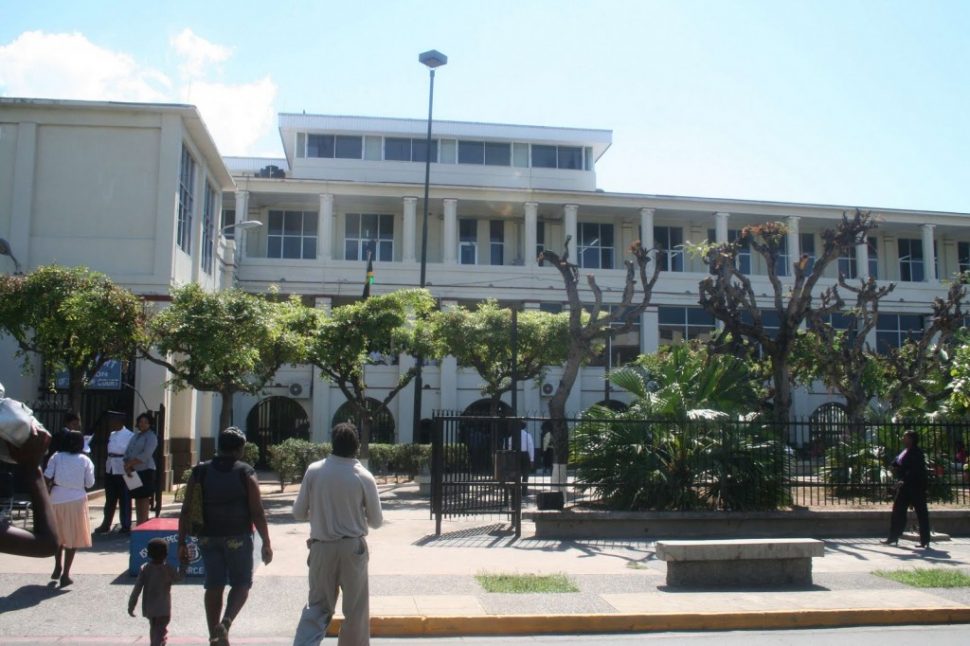(Jamaica Gleaner) George Williams was a mentally ill 20-year-old when he was arrested by the police in 1970 and charged for allegedly killing another man.
Now, nearly 50 years later, Williams is believed to be one of the seven persons identified by the Independent Commission of Investigations (INDECOM) who have been languishing in Jamaica’s penal system for more than 40 years.
Isat Buchanan, the attorney hired by the civil-rights group Stand Up for Jamaica to represent Williams, disclosed yesterday that his now 69-year-old client has been declared “fit to plead” but has not been to court in 48 years.
“His last court appearance would have been 1972 … when he was remanded at the governor general’s pleasure. He has never been back to court,” Buchanan told The Gleaner yesterday.
Williams was arrested and charged on December 29, 1970, for the murder of Ian Laurie on July 21 that year, according to documents perused by The Gleaner. The documents show that two days later, he was also charged with malicious destruction of a motor car owned by Laurie’s father and wounding with intent to do grievous bodily harm for attacking the alleged victim’s mother.
INDECOM, in its first quarterly report to Parliament for the first three months of this year, detailed the case of Noel Chambers, who was held at the governor general’s pleasure for four decades until his death on January 27 this year.
Chambers, who, like Williams, was a Rastafarian, was charged with murder, but was declared unfit to plead.
The report cited data compiled by the Department of Correctional Services (DCS), which shows that a total of 146 mentally ill persons deemed unfit to plead are currently being held at the governor general’s pleasure or at the court’s pleasure at three penal institutions in Kingston and St Catherine.
INDECOM cited, in the report, the case of ‘GW’, who has been incarcerated for 49 years at the court’s pleasure for the offence of murder. The oversight body said it was unable to determine whether ‘GW’ was fit or unfit to plead and that his last court date was 1970.
Buchanan, who visited Williams at the St Catherine Adult Correctional Centre yesterday, told The Gleaner that up to February this year, a prison psychologist had declared his client fit to plead. “Yet no documentation was brought before the court,” he said.
“This is a man that has been in prison before I was born.”
ARREST QUESTIONED
Amid plans to write to the governor general and the director of public prosecutions to secure Williams’ quick release, the attorney questioned the initial decision by the police to arrest his client on a murder charge at a time when he was mentally ill.
According to him, Williams’ history of mental illness meant that prosecutors would have a tough task proving that his client had the intent to commit murder, a key element required to ground the charge.
“To charge him for murder, given his history, would mean that the Government would, at no time, be in the position to prove the elements of murder, which is intention. So charging him for murder in the first instance was inflammatory because it was not something that they could prove,” he said.
Jamaica’s top prosecutor, Paula Llewellyn, dismissed that assertion, saying that once an individual commits the offence of murder, the police have a duty to lay a criminal charge regardless of whether the accused is mentally ill.
“All the police are concerned with is whether an offence was committed and whether they have gathered enough material to determine who is responsible,” Llewellyn explained.
She said that it is after the case goes before the court that a judge can order that a psychiatric report be generated to determine whether the accused is fit to plead.
“The police cannot take it upon themselves to be psychiatrist. It’s a legal issue for the court to determine,” said Llewellyn, the director of public prosecutions.





